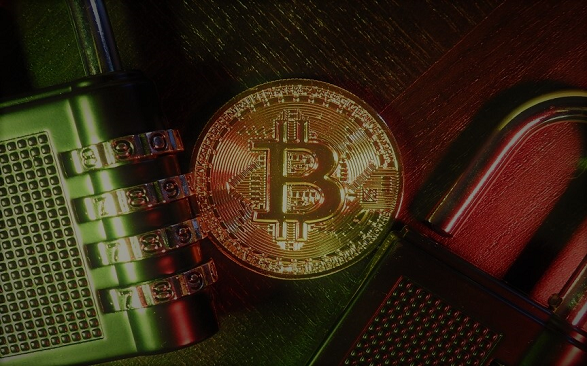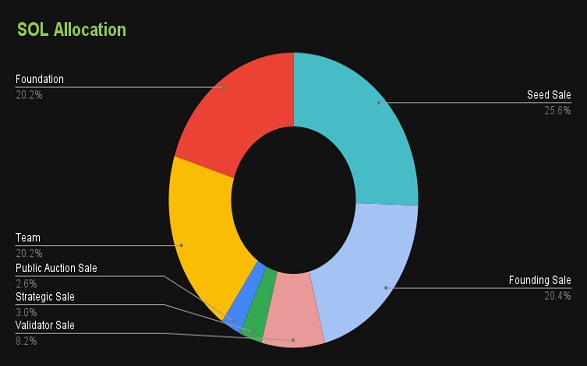Given the prevailing and potential positive impact of cryptocurrencies or cryptoassets and their capacity to give good returns, crypto investment has become an alternative investment for many individuals and even institutions. If you are still searching for means to make money online, investing in cryptoassets may be an option to consider.
But then, when it involves crypto investment, it is essential to remember that cryptocurrencies are highly volatile in nature—except for a category dubbed stablecoins—making them a highly risky investment choice. Also, as an emerging digital technology, coupled with a lack of clear regulations to streamline activities, the crypto space is not a completely safe playing field as there are many bad actors.
Cryptoassets are also very delicate because the smallest of mistakes could lead to the loss of investments to cyber criminals. Likewise, an investor who opts for self-custody could lose access to his cryptoassets if he fails to pay attention to safety and security details. Therefore, it is one thing to invest in crypto assets but it is another thing to keep your crypto investments safe and secure.
Whether you are a veteran crypto investor or just starting out in the crypto industry, this article will help you ensure that your cryptoassets are always safe and secure, far from the reach of hackers.
Understanding crypto investment
A popular maxim in the crypto community says, “Trading can make you rich, but investing can bring you wealth.” What does investing mean? To invest means to commit resources, such as time and money, to reap considerable benefits or returns in the future. Accordingly, crypto investing entails buying a cryptoasset such as bitcoin (BTC) and Ether (ETH) at a low price and holding until the asset’s price appreciates to take profits. However, it is not as simple as it sounds, as there are various factors to consider before making any crypto investment. Failure to carry out due diligence before clicking the buy button could lead to a loss of money or a negative return on investment.
Just as with most conventional investments, investing gainfully in cryptoassets requires a truckload of knowledge, discipline and patience, as it may take months, years or even decades for the price of a cryptocurrency to rise significantly. Therefore, crypto investors are typically long-term holders, unlike day or swing traders who settle for short-term gains. Investors believe that long-term pays better.
Does this mean that holding any cryptoasset over a long period is a guarantee that its value will rise? Of course not! Every crypto investor should know that not all cryptoassets will grow in value regardless of how long you may hold them. The crypto market encompasses all types of cryptocurrencies, including shitcoins, memecoins, and those with actual use cases. So, watch what you buy to hodl.
And before investing in any crypto token or coin, it is pertinent to evaluate the sustainability, utility, and tokenomics of the project associated with the crypto token or coin. This is because they can affect the adoption and price growth of a crypto project over time. In essence, a cryptoasset with a unique use case has a better chance to appreciate in the long run, while a cryptoasset with no applications for it may only take your money down the drain. Garbage in, garbage out.
Read also: How to Make Money From Crypto Trading
4 Safety tips in crypto investing
Below are some tips to help you invest in cryptocurrencies safely:
- Invest what you can afford to lose.
It is essential to note that cryptocurrencies are purely speculative assets, and there is never a 100% guarantee that a cryptoasset you buy today will rise (or drop) significantly in price over time. This means that anything is possible in the cryptocurrency market. Notably, some projects could do great at the start but plummet massively in the future due to poor management, unfavorable government regulations, adverse economic conditions, and numerous other factors. This has occurred several times in the nascent industry, with the most recent rise-and-fall scenarios seen with these cryptoassets—FTT, LUNC (formerly LUNA), and USTC (formerly UST).
Because of this high uncertainty in the crypto market, it is advisable to always stake an amount you are willing to lose, just in case your investment expectation goes south. On the flip side, invest an amount that can bring you meaningful returns, if things go as initially envisaged.
- Not your keys, not your coins
You’ve probably heard this before or just heard it for the first time. Howbeit, the common aphorism, “Not your keys, not your coins”, is no joke.
Cryptoassets can be stored on centralized crypto exchanges or in crypto wallets—cold or hot wallets. While some crypto users rely on exchanges to store their digital assets, it is believed that self-custody gives a user full control and ownership of cryptoassets.
When a user stores crypto coins or tokens on an exchange, there is a risk of losing access to the cryptoassets in cases where the trading platform folds or suffers a hack or security breach. This is so because the user does not have the private keys to the address holding the assets but rather the exchange.
On the other hand, a user who stores cryptoassets in a cold or hot wallet has full custody of the private keys associated with the wallet. On the whole, whoever has the private keys to a wallet address can boast ownership of the assets therein. It is therefore pertinent to secure your wallet private keys.
Read also: Self-custody of Your Cryptoassets: What it Means and How to Do It
- Beware of phishing attempts.
A phishing attack is a type of cyber attack where the attacker tries to bait a crypto user into disclosing sensitive information or data such as passwords or wallet seed phrases/ private keys. Crypto investors should be cautious of this type of attack, which often involves fraudulent emails, fake websites, and malicious links that mimic legitimate platforms. When connecting your wallet to a decentralized exchange, it is important to double-check the website URL before doing so to ensure that you are not dealing with a phishing website. Also, avoid clicking on suspicious links and never share your private keys or recovery phrases with any website requesting them. No legit crypto platform would demand your private keys or seed phrases.
- Own multiple crypto wallets.
Another safety measure is to have multiple wallets each having different functions. It is dangerous to connect your main crypto wallet—which contains your long-term assets—to every decentralized exchange that comes your way. That is, those cryptoassets you intend to hold over a long period should be stored in a very distinct wallet. It is also advisable to not use the wallet in interacting with phony or untrusted decentralized exchanges or cross-chain bridges. And if you are a regular crypto airdrop hunter, you should also have a separate wallet for all related activities. On the whole, having multiple wallets for different purposes is a no-brainer as using just one wallet for all activities could be risky. And similar to crypto investors maintaining multiple wallets is the idea of also maintaining multiple email addresses for different crypto wallets, if you use centralized crypto exchanges.
Conclusion
Paying attention to security details is crucial as it can prevent potential breaches or losses in the crypto-investing business. Self-custody which entails storing your cryptoassets in wallets instead of keeping them on exchanges is one way to ensure the absolute security of your crypto investments; not your keys, not your coins they say. But you must be vigilant with your private keys or seed phrases and beware of several forms of attacks, including phishing attempts. As mentioned above, investing only what you can afford to lose and not utilizing one crypto wallet for all crypto-related activities also help to guarantee safety in crypto investments.
Read also: Top 6 Hacks on How To Avoid Losses in Crypto Trading
Credit: Ndianabasi Tom
A crypto journalist and content writer who has been talking about cryptocurrency and blockchain technology since 2018, Ndianabasi is a Writer at Crypto Asset Buyer (CAB).
Discover more from Crypto Asset Buyer
Subscribe to get the latest posts sent to your email.




